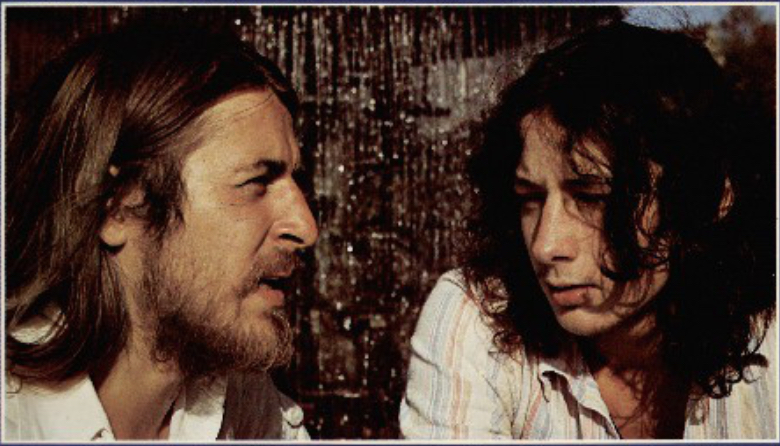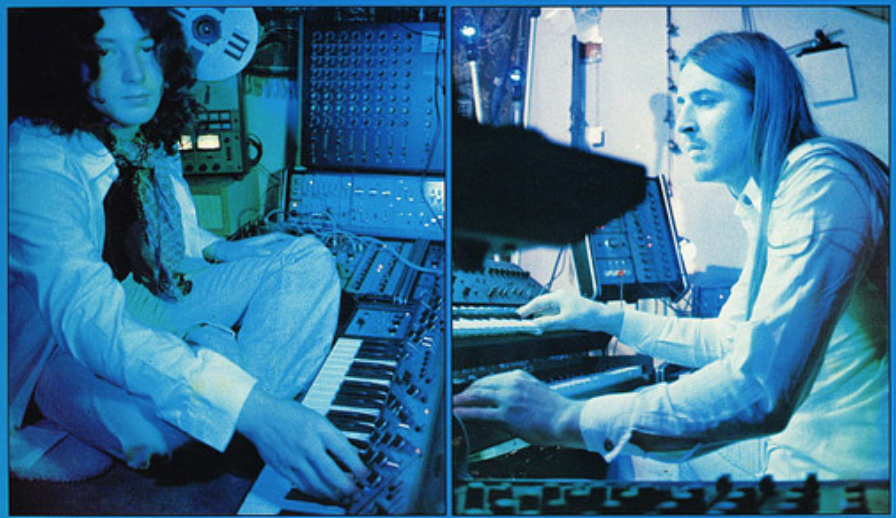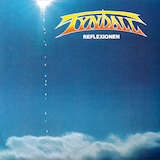TYNDAL- “Reflexionen” (reissue; original from 1982)

More so than on their preceding instrumental albums, Tyndall’s “Reflexionen” LP held a mirror to the band members’ personal situation and the prevalent mood of the period during which they made the record.
First of all, the two musicians (Rudolf Langer, Jürgen Krehan) had relocated to West-Berlin, an exclave in the GDR. Due to the fact that German military was forbidden by the Allied Powers in West-Berlin, neither Krehan nor Langer had to do national service or its alternative, community service.
Meanwhile, 1982 was the year when German-speaking pop and rock found its way into the charts alongside old-fashioned Schlager songs. Punk and New Wave had done the groundwork a few years earlier, but the music of bands like Fehlfarben, DAF or the Doraus und die Marinas was now ready to enter the mainstream under the banner of “Neue Deutsche Welle”. Music with German lyrics was flavour of the season. On a lot of tracks Jürgen Krehan sings in German on Reflexionen as well (using a vocoder).

“Reflexionen” is a less experimental album than its predecessor “Traumland”. Due in no small measure to the vocoder vocals with verses and choruses, the tracks feel more clearly structured, the arrangements more considered. Stylistically, “Reflexionen” is a mix of synth-pop and Krautrock, although tunes like “Elektronen” and “Zeitmaschine” occasionally hark back to the early, almost forgotten works of Andreas Dorau.
Bass octave, simple, breezy, dreamy harpsichord melody sprinkles, cheerful, carefree, sometimes enigmatic lyrics. The album closes with a series of eminently listenable instrumentals, which hint at the next stage of musical evolution which would ultimately reach its conclusion on the fourth and final Tyndall album.
Having successfully released three albums, the Berlin-based electronic duo Tyndall fell out so badly with one another in 1983 that they ended up splitting the fourth album, “Durch die Zeiten”, in two, taking a side each. Jürgen Krehan’s half showcases his customarily nimble synth-pop, as well as several pieces influenced by classical music.
Rudi Langer launches into celestial revelry on the other side, underpinned here and there by a driving beat. Nevertheless: both sides sound unmistakeably like Tyndall.

“Durch die Zeiten” was the last record released by the Tyndall duo. Both musicians continued to make music, just not with each other. Rudolf Langer teamed up with Peter Preuß to found LAPRE. Jürgen Krehan released a number of New Age albums as Nik Tyndall, wrote commissioned pieces of music and played live shows.
Source: Bureau B


